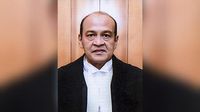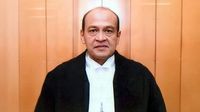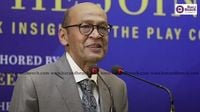In a significant development within India's judicial system, Justice Yashwant Varma of the Allahabad High Court has been indicted by a Supreme Court-appointed in-house committee over allegations concerning a substantial discovery of cash at his residence. This inquiry comes in the wake of a fire incident that occurred on March 14, 2025, at Varma's home, where firefighters reportedly found bundles of partially burnt currency notes.
The committee, formed by Chief Justice of India (CJI) Sanjiv Khanna, submitted its report on May 4, 2025, confirming the presence of unaccounted cash. Sources indicate that the CJI has urged Justice Varma to resign from his position. Should he refuse, the report will be sent to the President of India with a recommendation for impeachment.
Justice Varma has been given until May 9, 2025, to respond to the findings of the report. This timeframe is in line with the principles of natural justice, ensuring that he has a fair opportunity to defend himself before any further action is taken. The CJI, who is set to retire on May 13, 2025, aims to resolve this matter before his departure from the judiciary.
The inquiry began after a fire broke out at Justice Varma's residence, located in Lutyens' Delhi, while he and his wife were away in Madhya Pradesh. Only his daughter and elderly mother were present at the time. Following the incident, videos surfaced online showing bundles of cash burning, which sparked widespread allegations of corruption against the judge.
The three-member committee, comprising Chief Justice Sheel Nagu of the Punjab and Haryana High Court, Chief Justice GS Sandhawalia of the Himachal Pradesh High Court, and Justice Anu Sivaraman of the Karnataka High Court, was tasked with investigating the incident. They initiated their inquiry on March 25, 2025, and conducted interviews with over 50 individuals, including police officials and firefighters who responded to the blaze.
During the inquiry, Justice Varma was reportedly confronted with evidence gathered by the committee, which included testimonies from his personal staff and forensic analysis of the cash found at his residence. The panel's findings confirmed that a significant amount of cash was discovered in a storeroom during the firefighting efforts, contradicting Justice Varma's claims that there was no cash present and suggesting a conspiracy against him.
In response to the allegations, Justice Varma has vehemently denied any wrongdoing, asserting that the incident appears to be a setup aimed at discrediting him. He has sought legal counsel from a team of senior advocates, including Siddharth Agarwal and Arundhati Katju, as he prepares his response to the CJI.
The controversy surrounding Justice Varma has led to significant repercussions within the legal community. Following the allegations, the Allahabad High Court Bar Association protested against his repatriation from the Delhi High Court, where he was serving before the incident. As a result, the Supreme Court decided to suspend Justice Varma's judicial duties pending the outcome of the inquiry.
In a preliminary inquiry conducted by the Delhi High Court Chief Justice Devendra Kumar Upadhyay, it was found that there was no possibility of entry into the storeroom by anyone other than those residing in the bungalow or staff working there, raising further questions about the circumstances surrounding the cash discovery.
As the inquiry unfolds, the implications for Justice Varma's career and the integrity of the Indian judiciary remain significant. The final decision on the matter is expected to be made by CJI Khanna before his retirement, with the potential for lasting impacts on the judicial system.
Justice Varma's case has drawn attention not only due to the serious nature of the allegations but also because it highlights the need for transparency and accountability within the judiciary. As the situation develops, many are watching closely to see how the CJI and the Supreme Court will handle the findings of the report and what actions will be taken against Justice Varma.
Ultimately, the outcome of this inquiry will likely set a precedent for how similar cases are dealt with in the future, underscoring the importance of upholding the rule of law and maintaining public trust in the judicial system.






